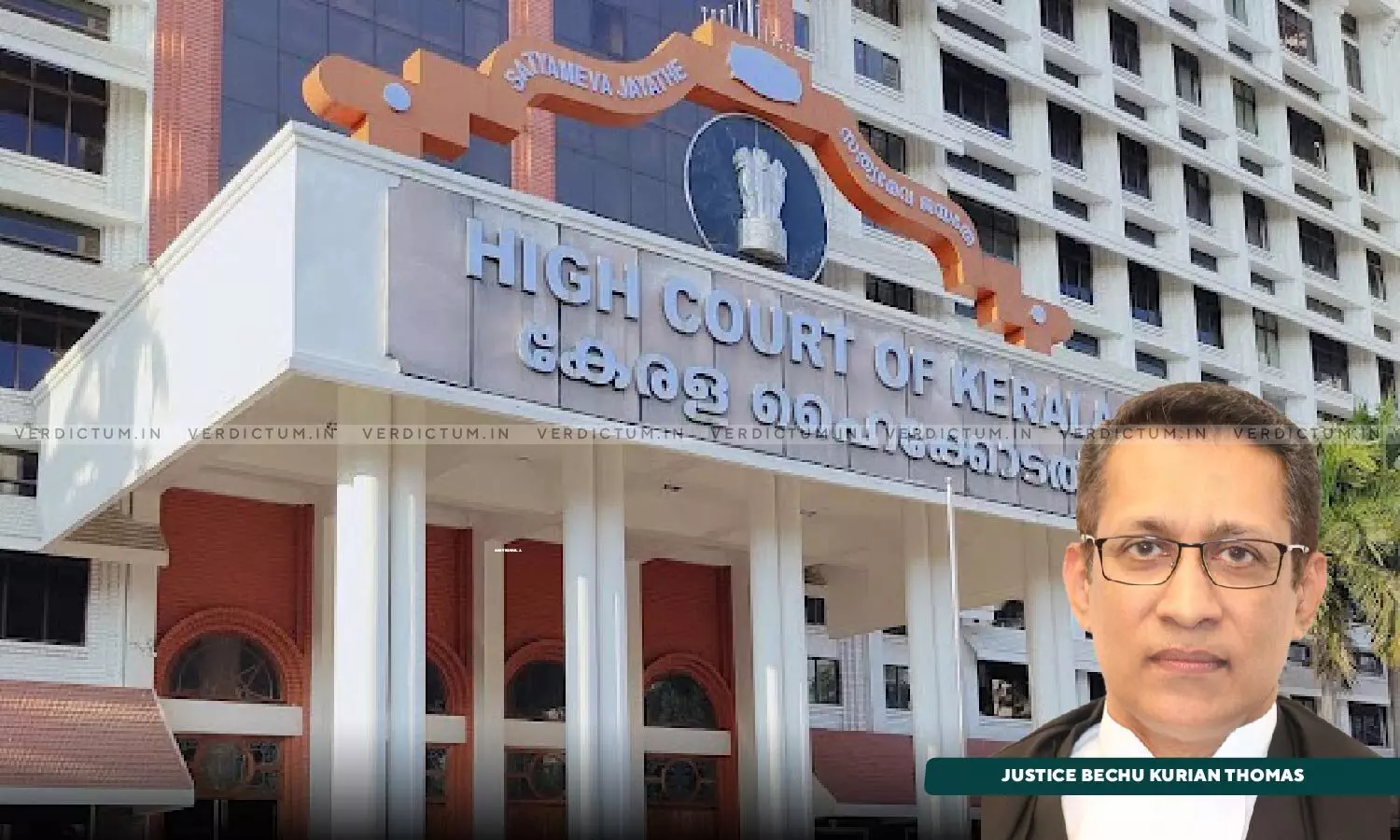
Inherent Power U/S 482 CrPC Can Be Invoked To Quash ECIR When It Continues To Exist Without Legal Authority: Kerala HC
 |
|The Kerala High Court observed that the Court can exercise its inherent power under Section 482 CrPC to quash a proceeding including an administrative document like the Enforcement Directorate’s ECIR, when it continues to exist, without legal authority.
The Court said that if the predicate offence is not in existence, the ED cannot continue its investigation on the proceeds of crime emanating out of the predicate offence.
The Court was hearing a Petition under section 482 of the Code of Criminal Procedure seeking to quash the proceedings initiated by the Enforcement Directorate under the Prevention of Money Laundering Act, 2002.
The bench of Justice Bechu Kurian Thomas observed, “this Court can exercise its inherent powers to quash a proceeding, including an administrative document like the ECIR, when it continues to exist, without legal authority.”
Senior Advocate Joseph Kodianthara appeared for the Appellant and Standing Counsel Jayashankar V. Nair appeared for the Respondent.
Brief Facts-
The petitioner, a scheduled bank, initiated an FIR with the Crime Branch alleging offences under Sections 420 and 471 of the IPC against respondents which are scheduled offences under the Prevention of Money Laundering Act. While the Crime Branch was investigating, the Enforcement Directorate began its investigation. The Crime Branch after concluding its investigation, referred the case as a civil matter, and the Chief Judicial Magistrate accepted the final report and closed the investigation. The petitioner claimed sufficient locus standi to seek relief and contended that the Enforcement Directorate cannot continue its proceedings given the acceptance of the final report, and thus seeking to quash the proceedings.
The Court mentioned the decision in Vijay Madanlal Choudhary and Others v. Union of India and Others (2022 SCC online SC 929), it has been observed that "if the person is finally discharged/acquitted of the scheduled offence or the criminal case against him is quashed by the Court of competent jurisdiction, there can be no offence of money-laundering against him or anyone claiming such property being the property linked to stated scheduled offence through him".
“Thus, if the investigation into the predicate offence has ended in a refer charge, no offence under the PML Act will arise.”, the Court observed.
The Court further mentioned the decision of the Supreme Court in the decision in M/s Pepsi Foods Ltd and another v. Special Judicial Magistrate and Others [(1998) 5 SCC 749] where the SC observed that the power conferred on the High Court under Art.226 and 227 of the Constitution and S.482 of the Cr.P.C have no limits and the only restriction is that more the power more care and caution ought to be exercised while invoking such powers.
Accordingly, the Court said that since an investigation by the ED is impossible without the existence of a predicate offence, it is essential that the ECIR be closed by the ED on its own volition soon after the predicate offence is quashed or the accused is acquitted or discharged. However, the Court observed, “when the ED refuses to close the ECIR, an aggrieved person is certainly entitled to knock at the doors of this Court either under Article 226 of the Constitution of India or under section 482 Cr.P.C.”
Finally, the Court quashed the ECIR and allowed the Criminal Miscellaneous Case.
Cause Title: South Indian Bank Limited v. Directorate of Enforcement (Neutral Citation: 2024:KER:53873)
Appearance:
Appellant: Sr. Adv. Joseph Kondianthara and Adv. G. Chitra
Respondent: Adv. Jayashankar V. Nair
Click here to read/download Judgment